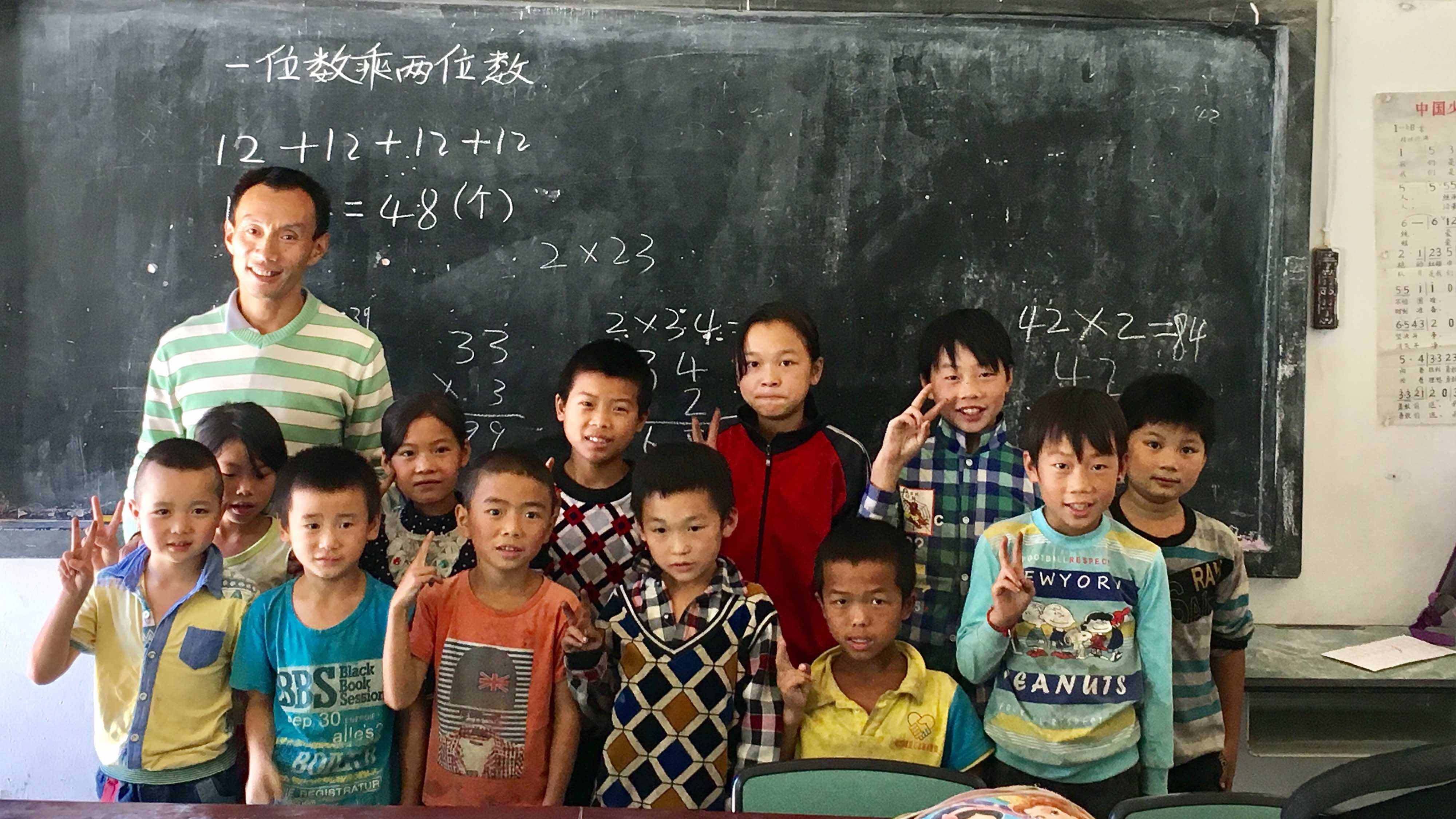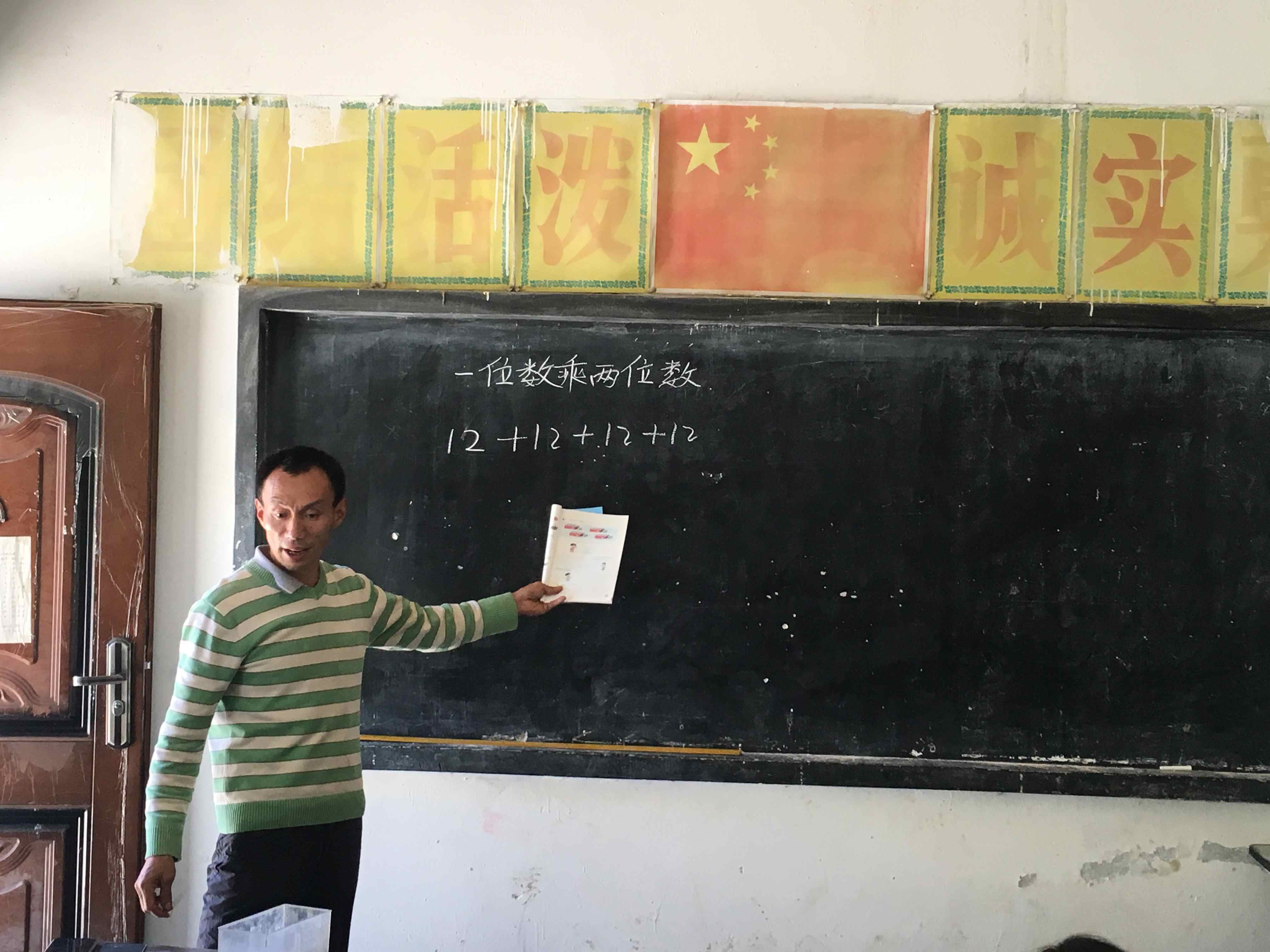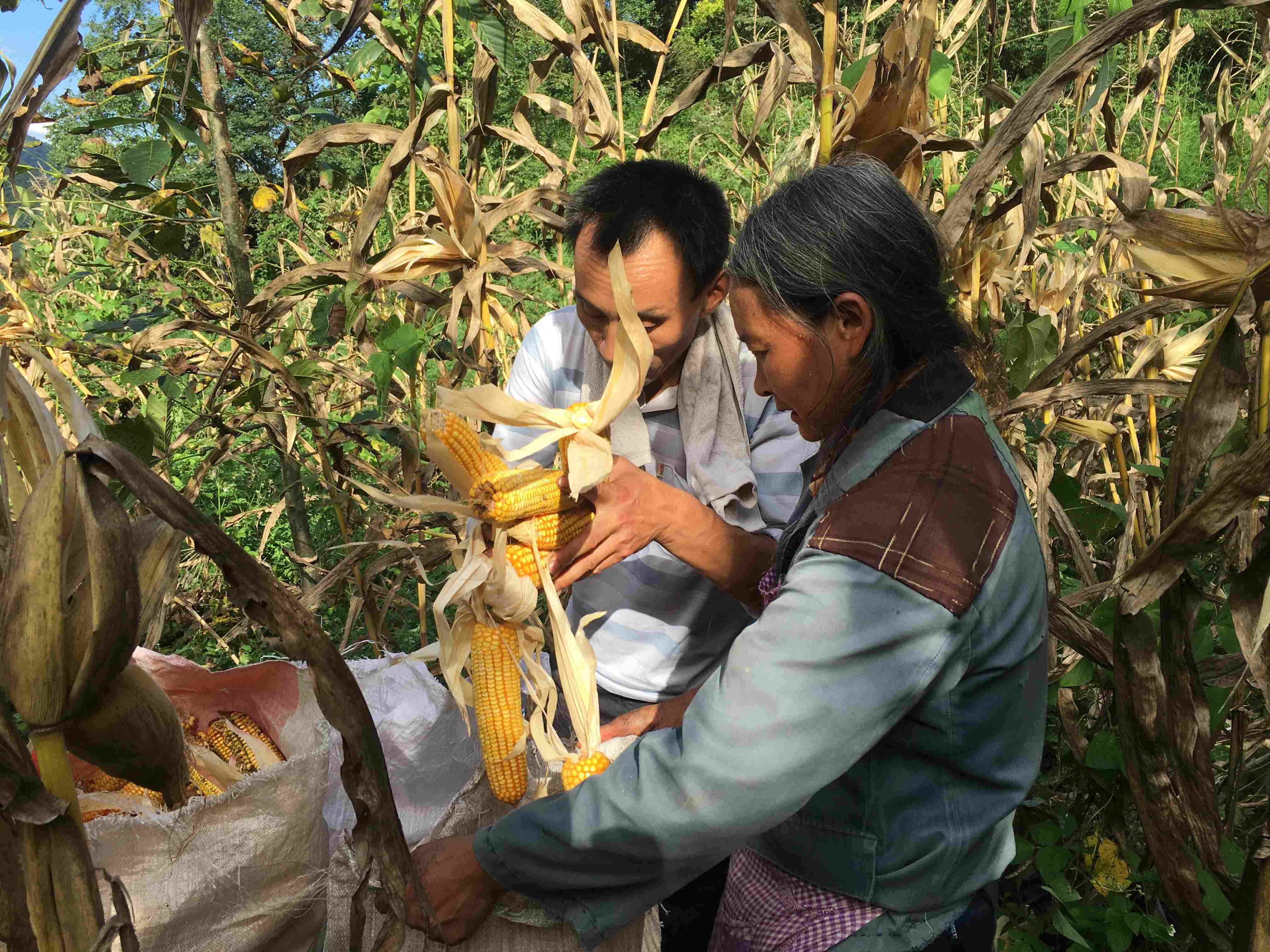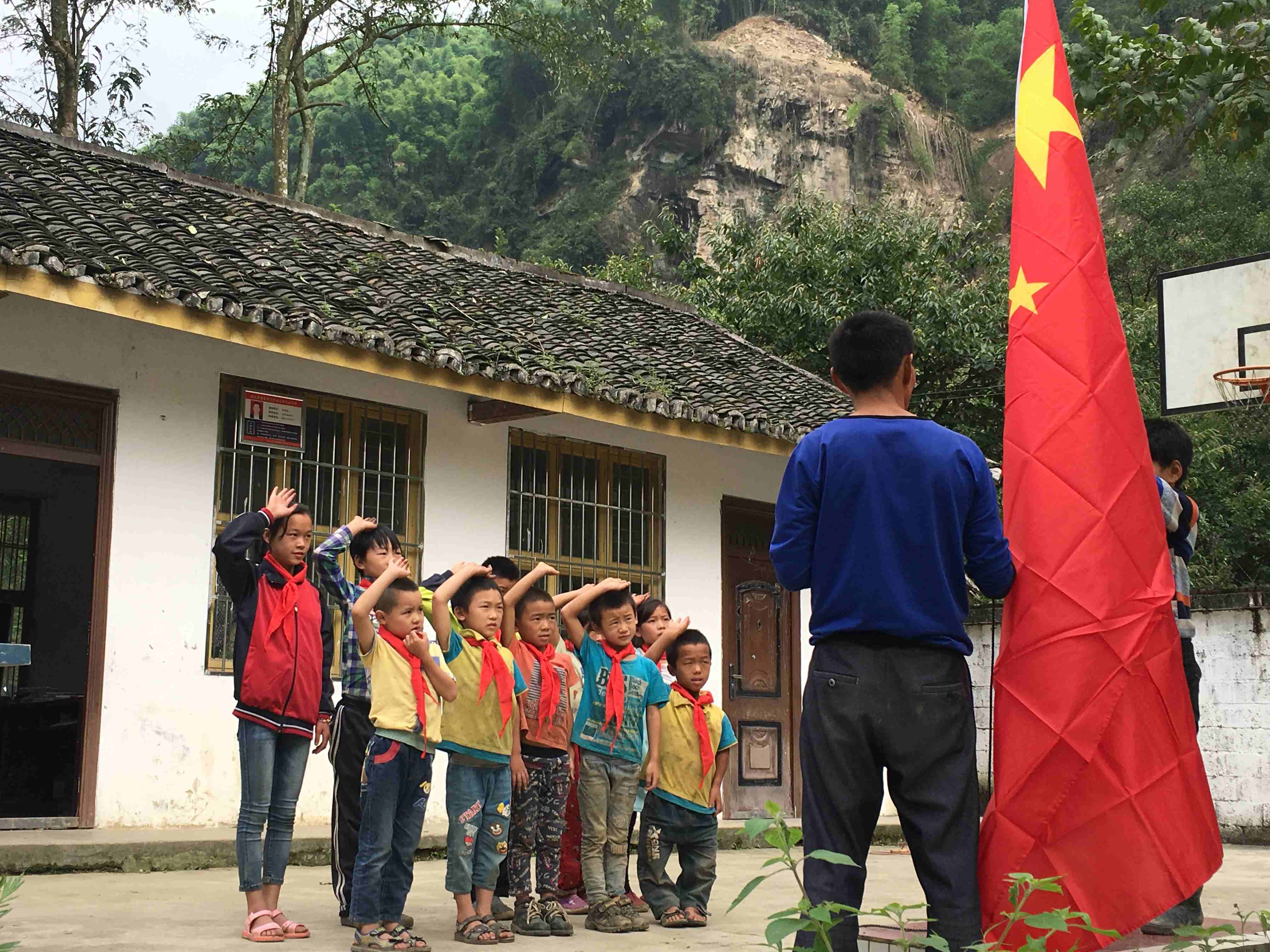
Culture
15:18, 10-Sep-2017
Teachers’ Day: A village teacher’s persistence lights up students’ hope
By Yang Jinghao and Zhang Kai

It has been more than 30 years since 51-year-old Huang Zongquan started his teaching career in Longbao village in southwest China’s Sichuan Province. Over the last three decades, he has been the only teacher for the only primary school of the mountain-surrounded village and is in charge of all subjects – Chinese, math, music, PE, etc.
“I’m alone here, but I don’t feel lonely. I love my students, and I have my family here,” Huang told CGTN.
Longbao village is one of the poorest places of the city of Yibin. Until last year, there wasn’t even a road here. For scores of years, Huang had to carry all his teaching material and the “nutritious lunch” (Nutritious Lunch Plan is an initiative launched by the State Council in 2011. Each student from rural area will be provided such lunch every day with a standard of 3-4 yuan, mostly bread and milk), with pack baskets, although he sometimes enlisted the help of horses.

Huang Zongquan teaches a math class. /CGTN Photo
Huang Zongquan teaches a math class. /CGTN Photo
But this is not the greatest challenge for Huang. In 1980s and 1990s, most villagers held the notion that receiving education is useless, especially the Yi people – an ethnic minority. Huang had to lobby the parents from home to home and even give them an advance on tuition fees for them.
“This is the hardest time for me,” said Huang.
But life has never been easy for the middle-aged man. When the school bell rings, Huang becomes an ordinary farmer burdened with endless farm work – planting and harvesting crops and feeding pigs.
“Of course I feel exhausted. But I have no choice. I love teaching, and I also have to earn money to support my son in college.”
Huang’s youngest son is a college student in the provincial capital Chengdu. As a teacher working under temporary contract, his monthly salary of about 1,000 yuan is far from enough for the tuition fees. But he thinks the sweats are worth it, as a son with a college degree is one of the greatest honors for him.

Huang harvests corns with his wife after class. The corns are used to feed pigs – a major economic source for his family. / CGTN Photo
Huang harvests corns with his wife after class. The corns are used to feed pigs – a major economic source for his family. / CGTN Photo
In fact, Huang had several opportunities to walk out of the mountains for higher-paying jobs, but he chooses to stay behind every time.
“I’m the only teacher in the village, and no one would like to work in such a poor place. I couldn’t bear to leave my students behind. That’s too heartless,” he said. Now Huang has a total of 12 third-grade students, who are to “graduate” from here and continue their schooling in a township school.
Two tile-roofed houses, a tiny playground and an extremely shabby toilet…Very few changes have taken place in the small school with a history of 64 years. The students have never seen a computer, projector and some other modern teaching equipment. But Huang said what gratifies him is that the villagers’ perception of education has largely improved. Now, enrollment rate is almost 100%.
"Receiving education is of course important. I've spent all my savings on my five children, and I would borrow money to support their schooling," Layi Kegu, father of a student from Yi ethnic minority, told CGTN.
Speaking of future, Huang says he would continue to teach as long as the school exists.

Huang Zongquan holds a national flag-raising ceremony in the tiny playground of the school. / CGTN Photo
Huang Zongquan holds a national flag-raising ceremony in the tiny playground of the school. / CGTN Photo
“I’m 51 this year and it is not easy for me to gain employment somewhere else. I’ve dedicated all my youth here and would persist until the last.”
Huang said what he expects most is the improvement of school facilities as poverty alleviation work proceeds. More importantly, he hopes dedicated young teachers will follow in his footsteps, and bring more knowledge to these kids.

SITEMAP
Copyright © 2018 CGTN. Beijing ICP prepared NO.16065310-3
Copyright © 2018 CGTN. Beijing ICP prepared NO.16065310-3